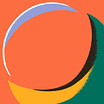This essay is part of a new collection of work inspired by the anthology On Being Jewish Now: Reflections of Authors and Advocates. Want to contribute? Instructions here. Subscribe here.

My parents were Holocaust survivors, and my brother and sister were murdered at Auschwitz—ghosts among the six million. I have interviewed more than 40 former death camp inmates for the Shoah foundation. I know something about antisemitism, and I was well aware of the Jew-hatred spreading around the globe in recent years. Even so, witnessing the world-wide support for Hamas’s October 7 barbarism changed me. It sickened me, body and soul. I never thought that the antisemitism of my parents’ era would arrive in America—let alone in New York, or on the bucolic California campus where I attended graduate school.
More than a year after the attacks, I’m trying not to fall apart. I obsessively follow the news of the ever-widening war, and recently visited the heart-rending Nova exhibition in LA. My friends tell me about their children being harassed on American campuses. I worry for my two teenage grandsons in the U.S., who will start college in a few years, and I worry for my nieces, nephews, and cousins in Israel. My warm memories of marching for Israel with 300,000 others in Washington, DC last November are no longer a salve to my conscience. So, what does this retired woman do when she needs a pick-me-up?
Retail therapy at Bloomingdale’s. I have a good excuse, too: I’ve barely updated my wardrobe since the Covid era. The clothes in my closet fit someone from a different time, with a different body.
Upon entering the store, the musky scent of perfume lures me to the Chanel counter. A naturally beautiful woman, younger than me but not wrinkle-free, greets me and asks what I need. She doesn’t try to upsell me—just helps me pick out a new shade of foundation and an eyeliner that smudges just right. We walk over to the register, where I pay and ask if she’s giving away any free samples. She gamely doles out four tiny, golden tubes of expensive eye and face cream.
“Please, anytime you need something or have questions, ask for me,” she says. “I’m Michelle. I’m here most weekdays.”
“Thanks, Michelle,” I reply. “I’m Helga.”
“What an interesting name. German, isn’t it?”
Here we go again, I think. The question that has haunted me my entire life.
“It’s actually Swedish, too. I was named after a Swedish Red Cross nurse,” I reply—giving away more information than I usually divulge on a first meeting.
“How interesting. Sounds like a story.”
Perhaps it’s her kind, somehow familiar face that prompts me to elaborate on the origins of my name—a name that has, all my life, been both a burden and a privilege.
“My mother survived Hitler’s concentration camps and was liberated by a secret Swedish rescue mission. I’m named after the woman who healed her.”
“I just got chills,” she says, clutching her arms over her chest. “I lived in Israel for ten years.”
“You’re Jewish?” I ask, somehow not surprised.
“Yes. I’m Ashkenazi. My grandparents came from Austria and Russia.”
Our eyes meet, and we smile widely at each other. I extend my hand.
“It’s nice to meet you, Michelle.”
Michelle takes my hand in both of hers, then shakes her head.
“We need to hug,” she says, and invites me in, both arms outstretched.
She holds me tight. I return her full-body embrace. We look at each other and then, for a long minute, we hug again. When we break apart, our eyes are glassy. We say good-bye, wiping away tears. I don’t look back. I can’t. The world has gotten smaller. Our shared pain brings us together. We are one family now, us Jews. No make-up can conceal that.
Helga Berliner Weinbach holds a B.A. from NYU and an M.B.A. from UCLA. She is a retired commercial real estate broker and is working on A Good Name—a memoir about family, history and identity forged by her relationship with the son of the Swedish woman for whom she was named. Helga lives in Los Angeles with her husband and loves making Shabbat dinner for her two sons, daughter-in-law, and grandsons.
This essay is part of a new collection of work inspired by the anthology On Being Jewish Now: Reflections of Authors and Advocates. Want to contribute? Instructions here. Subscribe here.




What a moving story! Two strangers embrace, two women who have suffered the same pain since the Hamas attacks on Oct. 7, two women who don't "look Jewish." The last sentence brilliantly links the first and second halves of this personal essay. Thank you, Helga, for sharing this story.
I very much enjoyed reading this essay, Helga. The past 14 months have been a time to form unexpected connections like your interaction at the cosmetics counter. Human beings need connection. As Jews we have been recently turned away from so places we once held in high respect, so finding connection in other surprising places has meant everything! Bravo for telling this story, Helga!